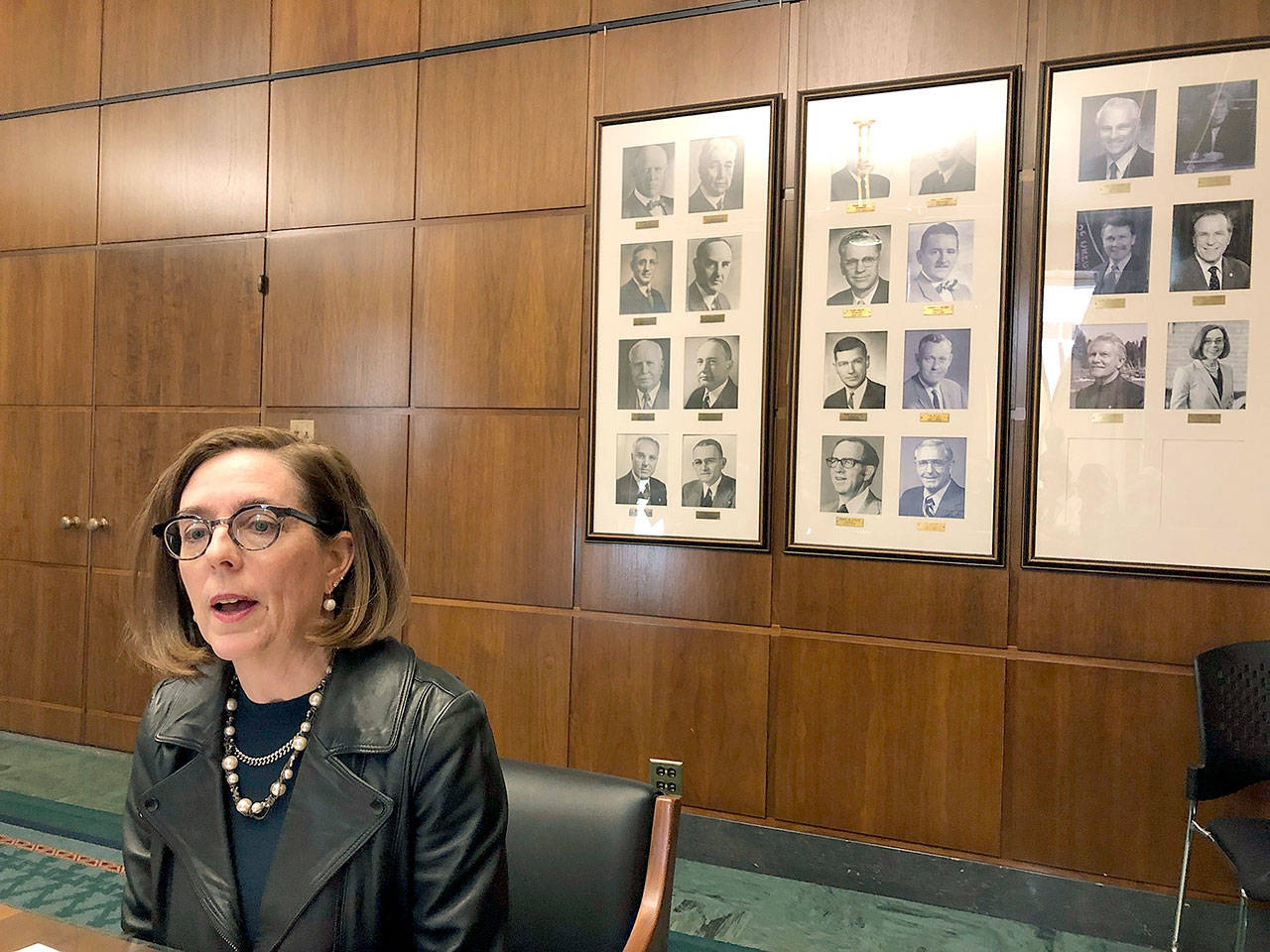By Reis Thebault / The Washington Post
Outside the Oregon State Capitol in Salem, small groups of protesters jockeyed for position. There were loggers who opposed the cap-and-trade bill up for a vote that morning. And there were young climate activists who said the legislation was vital to preserving the world they would soon inherit. But there were a few crucial components missing from the political drama unfolding in Salem on Thursday.
Namely, the lawmakers.
Inside the statehouse, the Senate chambers were conspicuously quiet. As the clerk called roll, a third of the room’s seats were empty. Republicans, facing down a Democratic supermajority bent on passing bills to combat climate change, resorted to some last-ditch political arithmetic: no senators, no votes.
Without their 11 GOP colleagues, Senate Democrats can’t achieve a quorum, and their legislative agenda grinds to a halt. So the Republicans fled. They left the state, reportedly bolting over the Idaho line.
But state Democrats, who control the Legislature and the executive, had a last resort of their own — and that afternoon, they used it. Gov. Kate Brown called the cops.
Brown instructed Oregon State Police to track down and round up any lawmakers on the lam, an order that authorizes authorities to put the elected officials in patrol cars and drive them back to the Capitol, though the department said it would instead opt for “polite communication.”
The governor accused the senators of abandoning their posts in the face of a potentially historic vote, one she said would put Oregon at the forefront of the nation’s fight against global warming.
“It is absolutely unacceptable that the Senate Republicans would turn their back on their constituents who they are honor-bound to represent here in this building,” Brown said in a statement. “They need to return and do the jobs they were elected to do.”
But Oregon Republicans said a boycott was the only way they could advocate for the people that voted them into office. They spoke of a deepening divide between the state’s ultraliberal urban enclaves and its sprawling rural counties with proud libertarian streaks.
“Protesting cap and trade by walking out today represents our constituency and exactly how we should be doing our job,” Senate Republican Leader Herman Baertschiger, Jr. said in a statement. “We will not stand by and be bullied by the majority party any longer. Oregonians deserve better. It’s time for the majority party to consider all Oregonians — not just the ones in Portland.”
Sen. Brian Boquist, one of Baertschiger’s colleagues, sent a warning to any search party that might come looking for him.
“Send bachelors and come heavily armed,” Boquist said he told the superintendent of the state police. “I’m not going to be a political prisoner in the state of Oregon. It’s just that simple.”
Critics of the cap-and-trade bill vigorously oppose it because they say it will have a disproportionate and detrimental effect on Oregon’s rural communities. Under the plan, greenhouse gas emissions would be limited and carbon-producing businesses would be required to purchase pollution credits. Over time, the state would decrease the number of credits available, thereby lowering the level of emissions allowed.
Those against the legislation argue that industry will likely pass the extra cost on to consumers, and the price of fuel would rise, putting a strain on industries like trucking and logging.
The two sides spent hours hashing out their disagreements on Wednesday and, as Brown said, they reached “an impasse.” Baertschiger called the negotiations “fruitless.”
It’s the second time this session that Republicans walked out in the face of a stalemate. But last month, Democrats were able to coax them back with a legislative carrot, rather than the state trooper stick.
The episode makes for another installment in the country’s storied and bizarre history of police officers chasing down lawmakers who have refused to do their jobs.
In the late-1970s, an apiary-themed manhunt unfolded for absent state senators in Texas. A Washington Post story at the time put it like this: “The hives of the Texas ‘killer bees’ remained undisturbed today … After four days of deadlock, the ‘worker bees’ are invoking the heroes of the Alamo, the ‘queen bees’ are under 24-hour surveillance and the ‘bumble bees’ are simply trying to defend themselves.
The killer bees, apparently, were 12 liberal senators who fled to sabotage the legislature’s quorum and block a bill they opposed. The worker bees were those lawmakers who stayed behind, while the queen bees were the wives of the missing men, whose houses the Texas Rangers, or bumble bees, were staking out as they searched for the senators.
Roughly 10 years after that, U.S. Senate Majority Leader Robert Byrd, D-W.Va., ordered Capitol police to search for a group of Republicans that had absconded to block the passage of campaign finance reform. Sen. Robert Packwood, R-Ore., barricaded himself in his office, an official history recounted. After officers pushed through, Packwood made them a deal: he’d go with them, but they had to carry him back into the chamber feet first, a theatrical protest.
More recently, a group of Wisconsin Democrats left the state to thwart a 2011 anti-union bill. Police were also dispatched to search for them.
In Oregon, as authorities sought his Republican colleagues, state Senate President Peter Courtney issued an entreaty from the chamber floor.
“I beg and beseech my fellow legislators to come to the floor,” Courtney said, according to the Associated Press. “I need you, the legislature needs you, the people of Oregon need you to pass budgets to take care of our citizens.”
But many were already on their way out.
The Oregonian reached one, just after 7 a.m. Thursday, as he sped out of the state.
“In a few moments,” Sen. Cliff Bentz told the paper, “I will not be in Oregon.”
Talk to us
> Give us your news tips.
> Send us a letter to the editor.
> More Herald contact information.

























